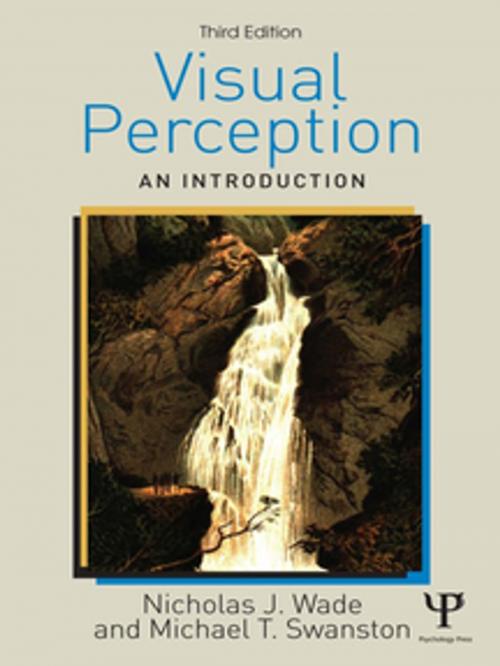Visual Perception
An Introduction, 3rd Edition
Nonfiction, Health & Well Being, Psychology, Cognitive Psychology| Author: | Nicholas Wade, Mike Swanston | ISBN: | 9781136178290 |
| Publisher: | Taylor and Francis | Publication: | March 5, 2013 |
| Imprint: | Psychology Press | Language: | English |
| Author: | Nicholas Wade, Mike Swanston |
| ISBN: | 9781136178290 |
| Publisher: | Taylor and Francis |
| Publication: | March 5, 2013 |
| Imprint: | Psychology Press |
| Language: | English |
Does the world appear the same to everyone? Does what we know determine what we see? Why do we see the world as we do?
Vision is our most dominant sense. From the light that enters our eyes to the complex cognitive processes that follow, we derive most of our information about what things are, where they are, and how they move from our vision.
Visual Perception takes a refreshingly different approach to this enigmatic sense. From the function that vision serves for an active observer, to the history of visual perception itself the third edition has been extensively revised, updated and expanded, while still preserving the essential features of historical context, neurophysiology and independent thought that made the earlier editions so engaging.
Covering the perception of location, motion, object recognition and with up-to-date information on the workings of the visual brain, the 3rd edition looks at how our ideas have been shaped, not just by psychology, but by art, optics, biology and philosophy. The emphasis on understanding vision as a basis for action in the real world has also been expanded to cover seeing representations of all sorts, whether they are pictures or computer-generated displays.
The 3rd Edition of Visual Perception is a readable, accessible and truly relevant introduction to the world of perception and will be welcomed by students of visual perception as well as anyone with a general interest in the mysteries and wonder of vision.
Does the world appear the same to everyone? Does what we know determine what we see? Why do we see the world as we do?
Vision is our most dominant sense. From the light that enters our eyes to the complex cognitive processes that follow, we derive most of our information about what things are, where they are, and how they move from our vision.
Visual Perception takes a refreshingly different approach to this enigmatic sense. From the function that vision serves for an active observer, to the history of visual perception itself the third edition has been extensively revised, updated and expanded, while still preserving the essential features of historical context, neurophysiology and independent thought that made the earlier editions so engaging.
Covering the perception of location, motion, object recognition and with up-to-date information on the workings of the visual brain, the 3rd edition looks at how our ideas have been shaped, not just by psychology, but by art, optics, biology and philosophy. The emphasis on understanding vision as a basis for action in the real world has also been expanded to cover seeing representations of all sorts, whether they are pictures or computer-generated displays.
The 3rd Edition of Visual Perception is a readable, accessible and truly relevant introduction to the world of perception and will be welcomed by students of visual perception as well as anyone with a general interest in the mysteries and wonder of vision.















